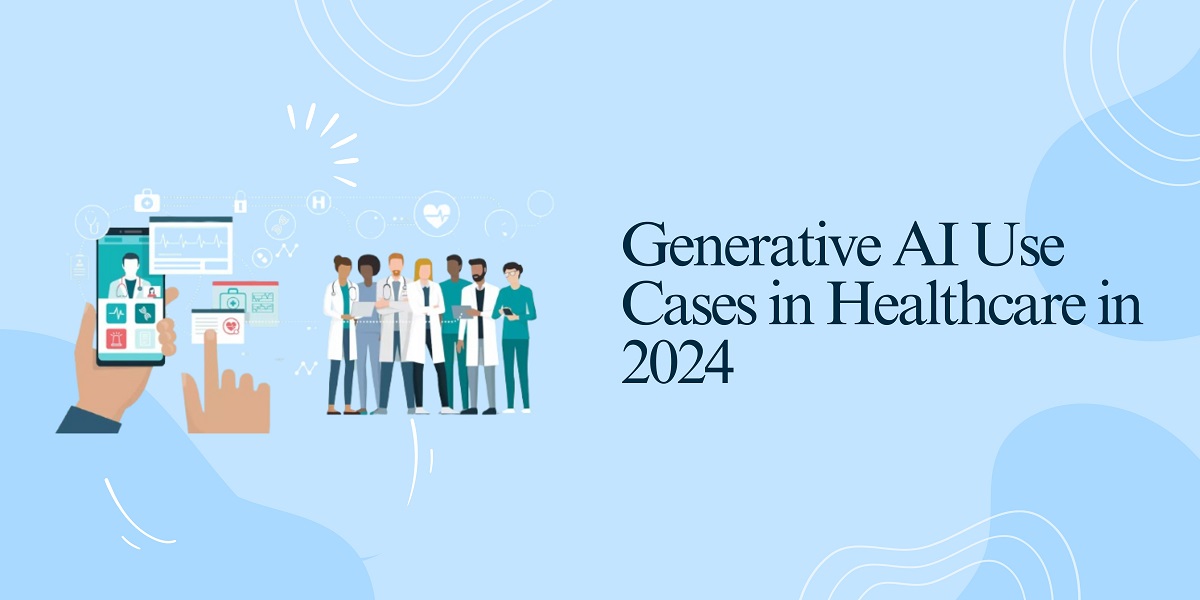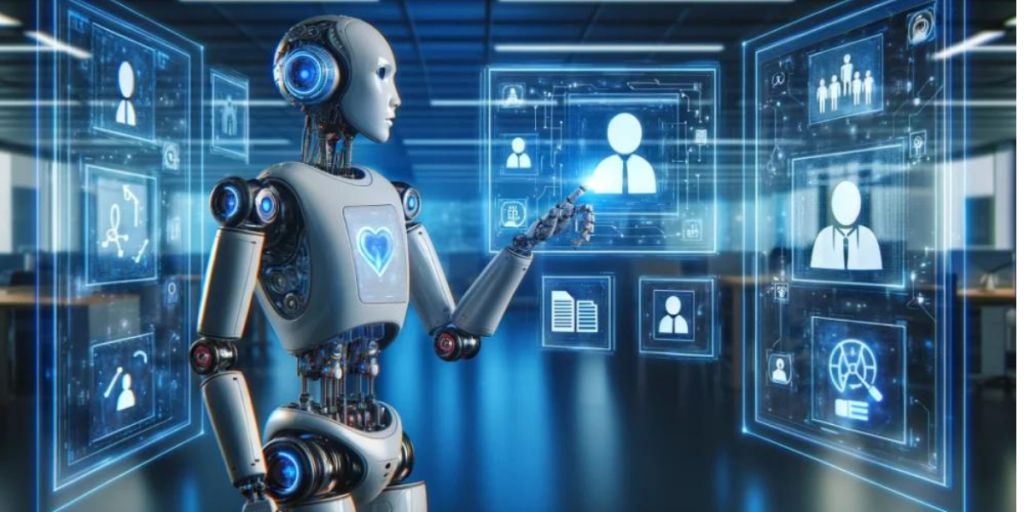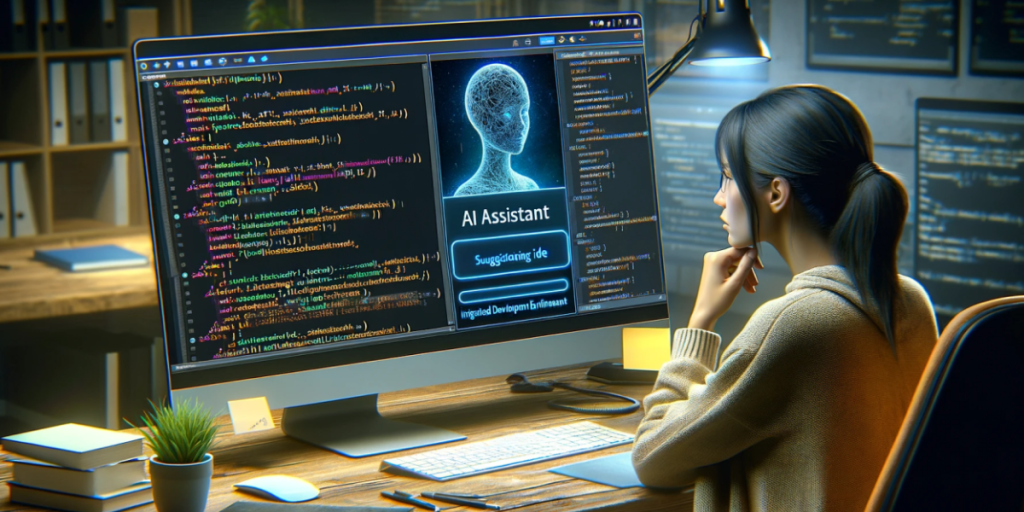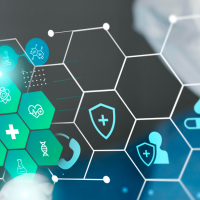Artificial Intelligence offers many benefits. Due to the different types and branches associated with the ability to learn artificial intelligence, it’s even simpler to access a vast selection of other options across various areas like healthcare. Generative AI is one of the AI technologies that aims to simplify things. Healthcare software as a service can be used to create content that comprises music, text, and images. Generative AI development is an excellent source for anyone in the healthcare industry.
The generative AI includes two neural networks aiming at their operating mode. Generators are responsible for generating new content, as the discriminator will check the quality of content. With the lengthier timeframes for creating content, the generator can create higher-quality content. After mastering the fundamentals of Generative AI, it is essential to understand that it plays an even more significant role in the healthcare field, which is why this article will explore the basics of the significance of Generative AI.
Personalized On-Demand Health Advice
Highly sophisticated artificial intelligence (AI) models that are generative AI models such as GPT-4, in conjunction with the expertise of a human doctor, have led to the emergence of a new generation of Virtual Health Assistants. Ada is a doctor-designed, AI-driven app that analyzes patients’ symptoms and provides medical advice in various languages (including English, German, French, Spanish, Portuguese, and Swahili).
The app has accumulated 13 million users and performed over 30 million symptom assessments. It asks you how you feel (you can also create separate profiles for symptomatic issues for family members) and then directs you toward possible medical illnesses and medical guidance. The app will also track your symptoms as they develop.
Millions of patients worldwide cannot access medical treatment. Either due to their geographic area, for economic reasons, or simply because their local health services are stretched too thin. It is possible to have generative AI fill in some of the gaps.
Disease Diagnosis
Thanks to the integration of generative AI, disease diagnosis is made much simpler. Experts typically provide the AI generative AI algorithm with massive collections of medical images containing different disease types. The algorithms, in turn, can learn from these pictures and recognize patterns similar to the diseases being studied. With near-perfect identification, the diagnosis of a patient is consequently quicker.
With the help of generative AI algorithms, it is crucial to comprehend the ease of detecting different strains of cancer, including, most specifically, skin cancer. For skin cancers, for instance, the algorithm can detect the possibility of skin cancer from the patterns of skin images it assigns to. The method reduces costs and decreases the time required to diagnose. Experts like dermatologists can also benefit from the algorithm and create more precise and sophisticated diagnoses. Other ailments that the generative AI techniques can detect include lung cancer. As it requires the analysis of medical images and CT scans.
Facilitating Medical Training and Simulations
Healthcare software as a service could produce realistic simulations that replicate a wide range of health conditions, permitting medical professionals and students to perform their training in a secure, controlled, and safe environment. AI can create models of patients suffering from various illnesses or assist in simulated surgical procedures or other medical procedures.
Traditional training typically involves pre-programmed scenarios that can be restrictive. AI can quickly create patient scenarios and adjust in real time in response to students’ choices. Hence creating an exciting and genuine learning experience.
Routine Information Gathering
Generative AI can improve the efficiency of reporting and information collection by interacting with patients in conversational language, resolving issues, and presenting data to health professionals. An AI system could assist health professionals in taking their patients’ medical history by asking specific questions casually. Another benefit of AI is the ability to access healthcare information exchanges (HIEs) to obtain patients’ medical records, review these records, and formulate relevant questions based on a patient’s medical history.
For instance, by comparing the patient’s medications and health issues, AI can verify whether patients are following their prescribed regimens or have stopped taking any medications that are in conflict due to new prescriptions. This helps in creating an extensive medical history of the patient. Physicians can utilize this information to provide more effective treatment.
Furthermore, patients used to AI applications across various environments may find it easier to accept and trust similar AI technology in healthcare. AI systems’ tasks are typically repetitive and carry a low risk, which is in line with the performance capabilities offered by the current generation of artificially generative AI technology. These systems created by Medical Software Development Company are proficient in dealing with these tasks and perform at a generally accepted acceptable level within this field.
Enhancing Speed and Security in Drug Discovery
Drug development requires an enormous amount of time. Imagine the possibility of using AI within healthcare settings to simulate every cell within our body, i.e., the virtual cells that resemble human cells. Researchers could use a simulator to study how our cells respond to triggers like diseases, infections, or medications. This could make diagnosis for patients’ treatment, diagnosis, and drugs more efficient and safer and efficient.
Medical Research
Another crucial aspect of medical research is the field of study in medicine. It’s a vast and challenging field that requires appropriate technology, such as generative AI. Generative AI algorithms always learn from the enormous amount of scientific literature, and through this process, they will be able to recognize patterns that are prevalent in various medical research areas. This will help to identify new research areas and theories.
Other important areas that are influenced by AI, such as generative AI, are medical simulations and personal treatment plans. Generative AI is, therefore, a crucial field that requires more significant investments, especially in healthcare. But, it is also facing various issues, including the ability to interpret, the ethics of experts, and issues of transparency, which can be resolved in the future.
Population Health Management
Utilizing a wealth of electronic medical record (EHR) data or HIEs, doctors can significantly enhance the control of patient populations. This can be done more efficiently through predictive analytics utilizing AI to determine at-risk patients who could benefit from prompt medical intervention. AI algorithms may also be trained to assess the possibility of hospital readmission after discharge by taking into account various patient-specific factors, and custom health plans designed using direct human involvement based on these predictions to help ensure patients get all necessary treatment to avoid further health issues.
Implementing AI applications developed by Medical Software Development Company might seem straightforward at first glance. But, it is crucial to realize that their efficiency is dependent on the presence of large and varied datasets. Data that EHRs and HIEs do not typically record, like the social determinants of patients’ lifestyles and everyday routines, plays an integral part in how they’re affected by their medical conditions. There is frequently an absence of systematically collected data in these areas, which can result in poor performance of the current prediction models.
To improve the efficiency of predictive AI models for health management, AI systems must be able to access and analyze vastly more extensive and diverse databases. This is possible through the integration of data that is gathered from wearable devices or smart gadgets. These devices can continuously keep track of a variety of health-related information. This can provide an improved overview of a patient’s health status. Incorporating this information could provide more accurate predictions and, consequently, more efficient intervention strategies that will enable an individualized and proactive approach to healthcare.
Automating Administrative Tasks
It is one of the most well-known creative AI applications in healthcare. Research shows that the burnout rate for physicians within the US has reached 62 percent. Doctors suffering from this issue will more likely participate in situations that could harm their patients. They are also more likely to engage in alcohol abuse and suicidal ideas.
Generative AI greatly helps relieve doctors’ burdens by streamlining administrative duties. It can reduce the cost related to administration, which, as per Health Affairs, accounts for 15% to 30% of healthcare expenditures.
Treatment
AI might have applications in the diagnosis procedure. Its application in the treatment process poses significant difficulties. This is mainly due to liability and accountability concerns, patient trust and acceptance, and limitations in technology and practice. Healthcare professionals bear the sole responsibility for the treatment they provide.
In cases of malpractice, doctors must defend their actions. Modifying the legal structure to shift the responsibility for treating AI developers appears unlikely and would create a significant chance for AI developers to be held accountable for their mistakes. Additionally, patients’ trust in AI-controlled therapies has yet to reach the level that would allow widespread use.
AI lacks the advanced technological capabilities to perform doctors’ complex tasks beyond medication management. Treatments tend to be highly individualized, which may not match AI’s strengths in high-repetition and low-risk tasks. Because of these challenges and the fact that AI is a complex system, integrating AI into medical treatments is unlikely in the near term.
Better Decision Making
Another AI use case in healthcare is that it facilitates better decision-making. These applications aim to aid decision-making in innovative methods and are crucial to redesigning business processes. Imagine creating marketing content specific to a particular customer, simulating a physician’s reactions to various messages, and then determining the best next step.
Support For Public Health
AI plays an essential part in healthcare today, rapidly and instantaneously processing massive volumes of data and extracting insight for analysis. AI is the ideal way to support public health; its fast processing can quickly predict disease outbreaks while acting as an early alert system.
Make Sure You Can Size Up The Information
Getting the most value out of Gen-AI’s potential will require comprehensive, high-quality data sets. This is why health leaders need to start contemplating ways to increase the fidelity of their data and accuracy through strategic partnerships with providers, payers, and technology vendors. They should also consider investing in interoperability.
The leaders must also evaluate their AI tech stack, including the apps, models, APIs, and other infrastructures they’re currently using, to identify what capabilities need to be enhanced to use large-scale language models. Investing in the AI tech stack today will allow organizations to expand the applications for Gen AI in the future.
To train models using Gen-AI, organisations must ensure that the data they process is within secure firewalls. After assessing their internal capabilities, company leaders can decide to outsource different parts of their technology stack.
Post-Treatment Monitoring And Follow-Up
This field holds excellent AI deployment potential fueled by two primary reasons. The first is that while adherence of patients to the post-treatment recommendations is vital, medical professionals have only limited options to ensure patients’ compliance. Insufficient compliance can reduce the effectiveness of treatment, negatively impacting patients’ health, and could result in costs for healthcare and medical professionals.
In addition, the emergence of wearable devices, smartphones, smart devices, and smartphones with sensors allows you to monitor patients’ behavior beyond the clinical setting. AI can use this information to provide real-time monitoring and specific recommendations and treatments. With access to this vast information, AI can also enable medical professionals to address patients’ health issues by alerting healthcare professionals when urgent medical attention is required.
Policies and Recommendations
Let’s take a look at the policies and recommendations one should keep in mind before using AI generative in healthcare.
Transparency
To maximize the application of Healthcare Software Development Services, it is essential to promote an open and transparent culture within AI developers and facilitate the synergy between health professionals and tech experts. This is crucial to ensure that the advice provided by AI is well-informed and thoroughly scrutinized for accuracy. Thus reducing the possibility of errors that result from inaccurate inputs to data or flawed algorithms.
Smash Data Monopolies Using HIEs
Amplification of current monopolies in the healthcare market is one of the biggest concerns of this digital age. AI systems rely on vast quantities of high-quality information for optimal performance. More prominent medical companies with a significant market share and more data could enhance their position. This will lead to rising healthcare costs. This puts smaller, independent medical providers at a competitive disadvantage because they can utilize AI differently to strengthen healthcare delivery. The disparity in quality could increase the gap in healthcare quality and make it more difficult for communities with low access to care.
To stop this from happening, industry leaders, regulatory organizations, and health consortia must take on initiatives that make access to medical information more accessible to support AI development. HIEs can be a crucial component in this regard. They can serve as aggregators and integrators for information from many sources. Through centralizing this data, HIEs could facilitate the implementation of AI systems that can learn from various medical documents.
Additionally, HIEs could offer AI as a shared service for their affiliates, making sure that all members, regardless of size, can benefit from the insights gleaned from large datasets.
Informed Consent
In addition, there is a significant need for transparency regarding patient communications. Patients must be informed of the importance AI plays in their healthcare journey. They must also be aware of the privacy implications that come with the use of AI-driven tools. Especially when the data collection goes beyond traditional medical records and includes data gathered from wearable devices and other innovative technology.
It is essential to inform patients on how to use their personal information, the privacy protections in place, and the nuanced advantages and dangers associated with AI in healthcare, which is essential to making informed decisions. This training goes beyond fulfilling the requirements of the law. It acts as a crucial factor in ensuring confidence between the patients and the advancing health system amid the technological revolution.
Conclusion
Generative AI offers endless opportunities to improve healthcare and development. It has led to discovering new medications and methods for diagnosing diseases. These applications have all improved efficiency in healthcare, especially when it comes to chronic diseases. Generative AI has increased the accuracy of diagnosing diseases, directly impacting how the healthcare system tackles illnesses.
Thus, accurate diagnosis can be an effective research process and patient prescription. Despite all this success, it is clear that generative AI has several problems that require immediate action. Most of the effort made by healthcare professionals involves studies into new processes and methods that can accommodate changes. So, generative artificial Intelligence, when properly controlled and monitored, could be a way to improve the quality of healthcare and enhance people’s lives and security.

























